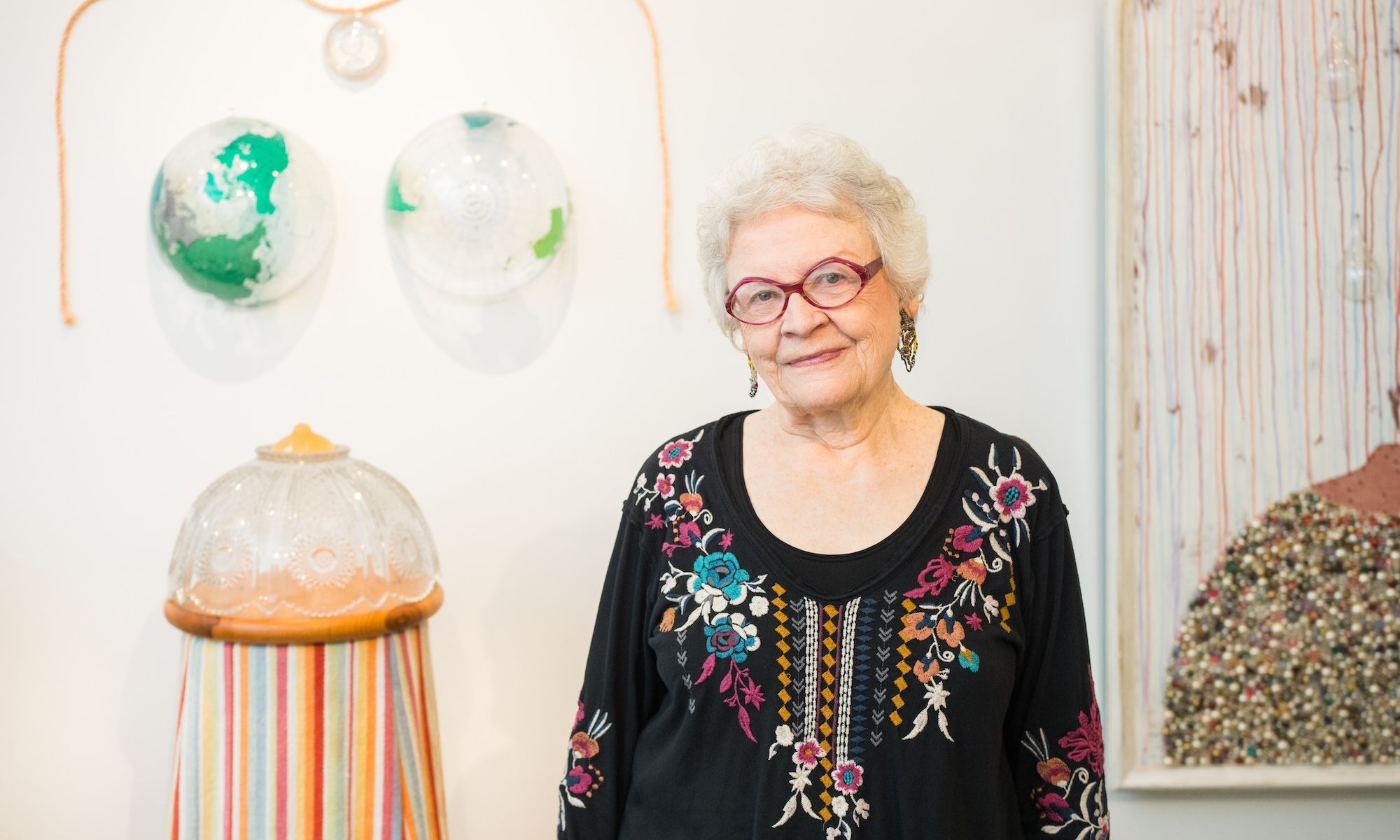Carol Cole Levin Photo by Carolyn de Berry, 2024
The North Carolina-based artist and philanthropist Carol Cole Levin, known for her feminist drawings and sculptures inspired by the human breast and a Southern sense of dark humour, has made a transformational gift of nearly $5m in art and funding to the Weatherspoon Art Museum at the University of North Carolina (UNC) Greensboro. The donation will allow the museum to renovate its building and create new programming for a teaching museum on its first floor, due to open in 2026, that it will call the Cole Levin Center for Art and Human Understanding.
Cole Levin, who was born in Mississippi in 1943 but has lived in North Carolina since 1984, has a long history with the museum. She previously served as president of its advisory board in the late 1990s and encouraged its exhibitions and collecting of work by women artists, including Hannah Wilke and Lorraine O’Grady. She cites the Weatherspoon’s focus on nurturing humanist principles among its student body—50% of whom identify as the first in their families to attend college, and 53% as people of colour—as the impetus behind her continued support. The teaching museum “engages them in art about who we are as human beings and what we all have in common”, Cole Levin says. “That's what this centre is to represent.”
Carol Cole, The Dissection of ANI, 1993. Promised gift to the Weatherspoon Art Museum from the Carol Cole Levin Collection © Carol Cole, photography by C. Timothy Barkley
Her earliest work from the 1970s, such as The Bubble Blower series based on an image of a breast with an inverted nipple, came out of workshops she took with artists like Lynda Benglis, Judy Chicago and Ida Kohlmeyer. But following a divorce from her first husband, and as a single mother of two sons, Cole Levin worked for a living in computer software and accounting systems, until she sold her business in 1990 and was able to focus on her art-making and collecting. “I did a workshop with Elizabeth Murray in the early 1990s and when I told her I was out [of the art world] during the 80s, she said: ‘You didn't miss anything,’” Cole Levin says.
Over the years, she has collected works by the women she studied under or was inspired by—”I started buying the work of the artists who had saved my life,” Cole Levin says—as well as younger generations. Her second husband, Seymour Levin, who died in 2021, covered their day-to-day expenses so she could dedicate her own income to her art. “I had such a supportive husband,” she says, comparing him to her favourite symbol of nurturing: “I married a breast.”
Today Cole Levin owns pieces by Walter Anderson, Willie Cole, Nancy Grossman, Meret Oppenheim, Pepón Osorio, Joyce J. Scott, Trenton Doyle Hancock, Eudora Welty and Tennessee Williams, among many others. “I've been accused of having a feminist collection, but actually, there’s the same percentage of females and males as in the country—and we are a majority,” she says, “but I have men that express vulnerability too.” The around 270 works by more than 140 artists that she is giving to the Weatherspoon represent about a third of her total collection, and include a zippered Head sculpture by Grossman.
Joyce J. Scott, Buddha Gives Basketball to the Ghetto, 1991. Promised gift to the Weatherspoon Art Museum from the Carol Cole Levin Collection © Joyce J. Scott, courtesy Goya Contemporary, photography by Dhanraj Emanuel
“Growing up in Mississippi, I couldn’t say what I thought, I had to watch my words, and that’s what I identified with,” Cole Levin adds. “That’s when I realised what was important to me was human vulnerability, not the big brushstroke or depth of field—I'm looking for psychological depth.”
Next spring, students will curate a show that draws from works in Cole Levin’s promised gift. Following the renovation, the new art centre will include spaces for teaching, study and exhibition that “will nearly double its capacity to engage students with essential skills for effective communication, problem solving, creativity and empathy as they prepare to contribute meaningfully to a global society”, says university chancellor Franklin D. Gilliam, Jr.

